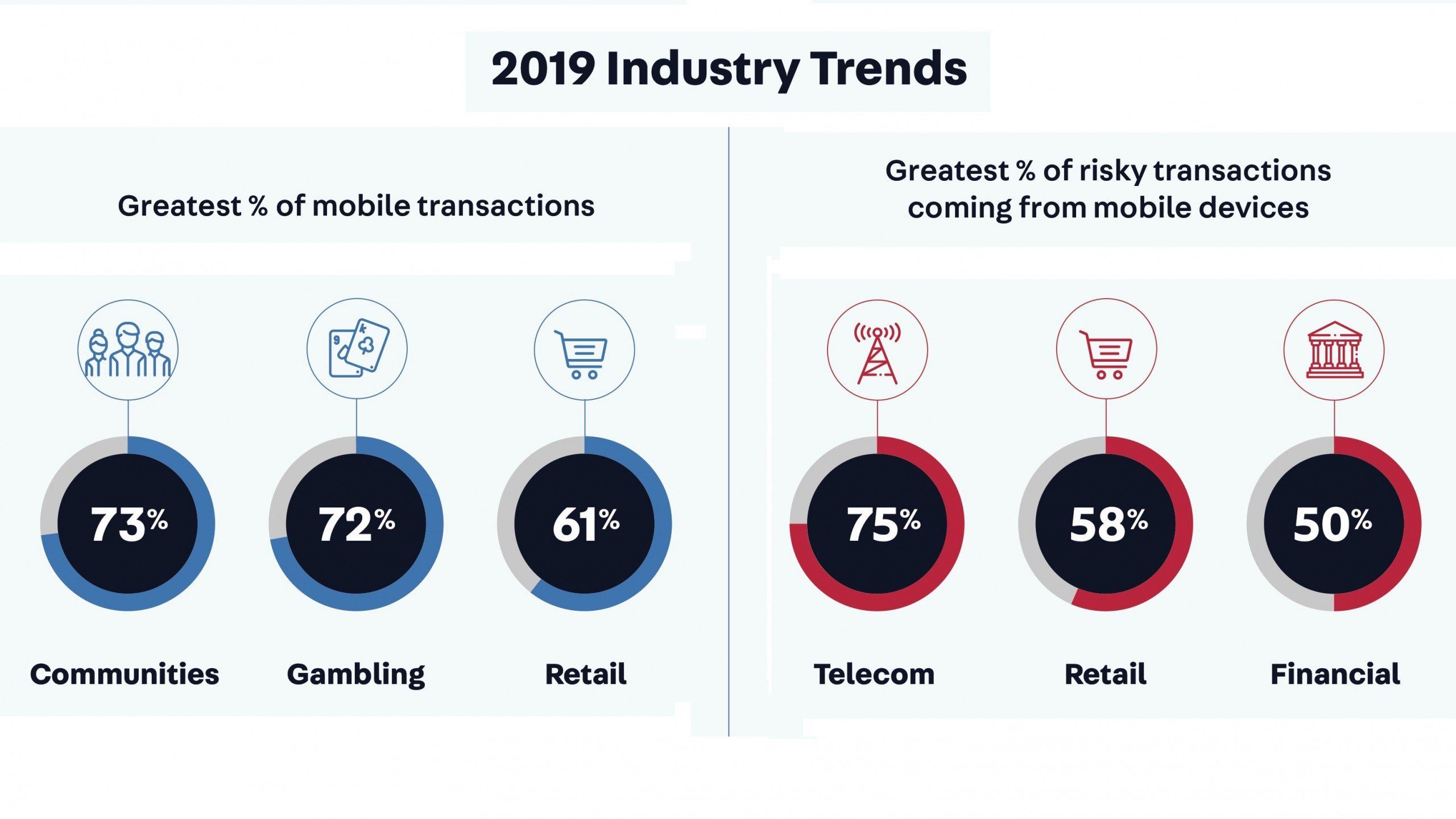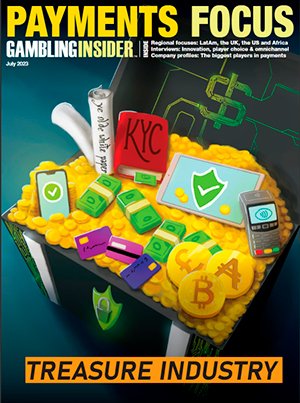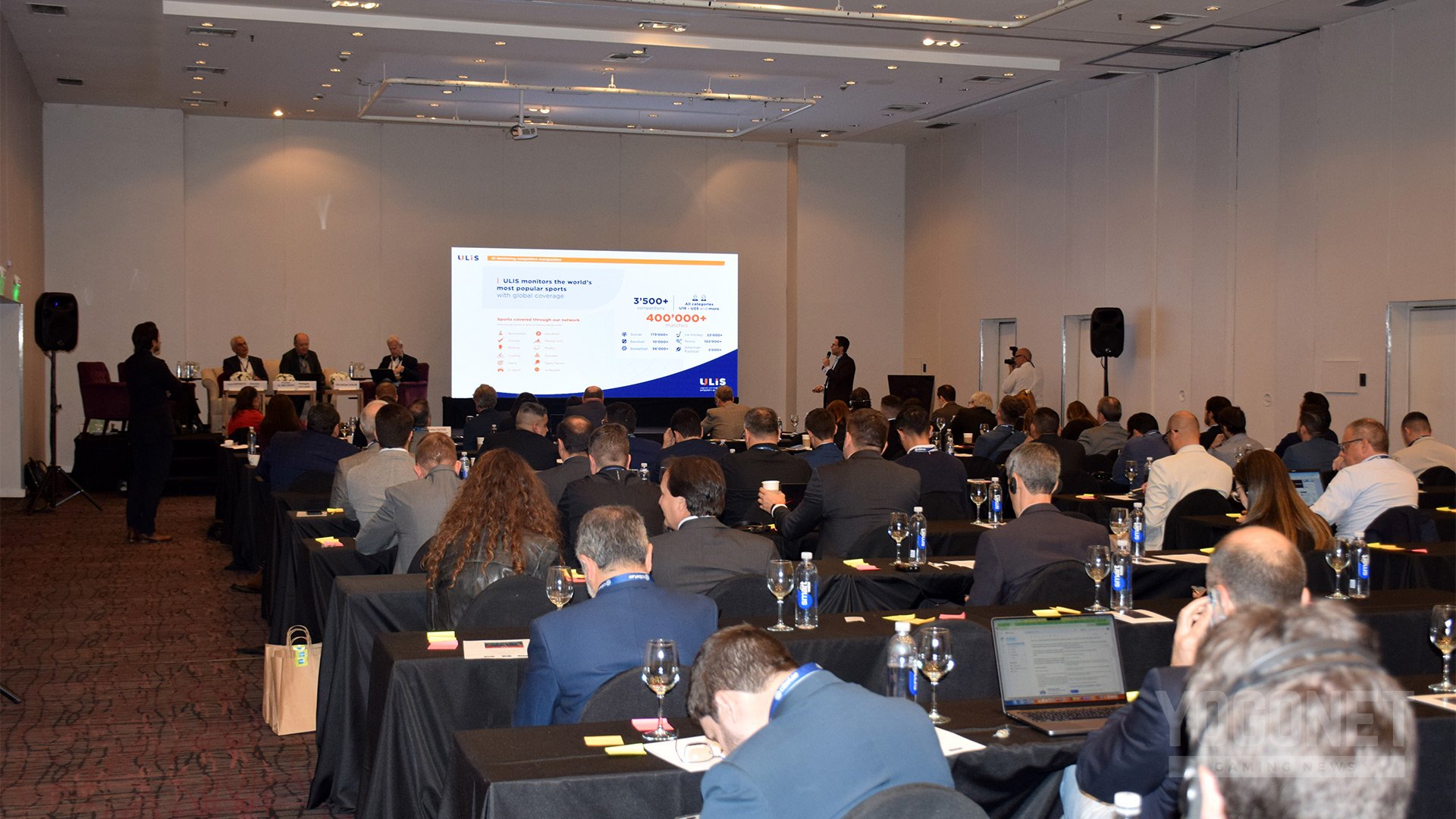Gambling is the second industry for overall mobile transactions

Iovation released last week its recent research that shows about half of all risky online transactions appear to be coming from a mobile device. Specifically, in the first half of 2019 iovation saw 49% of all risky transactions come from mobile devices, up from 30% in 2018, 33% in 2017 and 25% in 2016.
Asked about gambling numbers in particular, Brooke Snelling, Senior Manager at iovation, tells Yogonet that this industry is consistently among the top for both risky transactions from mobile devices and mobile transactions in general. She says fraudsters are always adapting their tactics to make it look like they’re legitimate customers, but with a combination of machine learning, device behavior and device reputation, “iovation is able to instantly recognize who is an honest player, and who is a repeat abuser.”
“This is important for gambling operators to be able to give good players a frictionless experience and reward them with VIP incentives, while stopping fraudsters,” she remarks. Snelling says the research firm is also seeing wide adoption of mobile in gambling, outpacing most industries that it helps protect, including e-commerce and online banking.

The top industries for overall mobile transactions so far in 2019 are communities (73% from mobile); gambling is second with 72% transactions coming from mobile; and then retail with 61%. In 2018, gambling was first with 70%; in 2017, it was in second place with 62%, the same position as in 2016, when 55% of transactions came from mobile. “So it appears fraudsters have recognized legitimate customers in online gambling are using mobile phones and are following suit to appear legitimate,” Snelling points out.
As for the top industries for mobile fraud, in 2018 gambling was first with 60%, but so far in 2019 it is not even in the top three, since telecommunications lead with 75% of all risky transactions coming from mobile devices; followed by retail with 58%, and financial services with 50%. “One could speculate that gambling operators have put controls in place to stop these types of abuses so fraudsters have moved to easier targets. But keep in mind there is nothing concrete to back that up and these statistics are only through June 30, so much can change in half a year,” the iovation specialist says.
When asked for expectations for regular mobile transactions related to gambling throughout 2019, Snelling explains: “I don’t like to make too bold of predictions, but in the U.S. we expect to see the amount of online gambling transactions grow tremendously as states continue to legalize online gambling. So far this year, 72% of online gambling transactions appear to be coming from mobile, the number two industry so far in 2019, only behind online communities. Couple that with the fact that North America is consistently one of the top continents with the highest percentage of overall transactions coming from mobile, all signs point to the fact that online gambling will be the top or one of the top industries for mobile transactions.”
The top continents for mobile fraud so far in 2019 are North America with 59% of all risky transactions, followed by Asia with 55% from mobile. In 2018, Asia was first at 53%, while in 2017 and 2016, North America led the ranking with 55% and 36%, respectively.
“Fraudsters are like chameleons. They are always adapting their tactics to make it look like they’re legitimate customers,” said iovation’s Senior Director of Customer Success, Melissa Gaddis. “With well over half of all transactions now coming from mobile devices, our analysts increasingly see fraudsters either using mobile devices or making it look like their transactions are coming from mobile when in fact they are using a traditional desktop.”
iovation, a TransUnion company, came to its findings by analyzing the 30 billion online transactions it evaluated for fraud from January 2016 to June 30, 2019. To find the risky mobile transactions, it calculated the percent of risky transactions from mobile devices compared to overall risky transactions. For overall mobile transactions, it calculated the percent of mobile transactions compared to all online transactions. iovation defines risky transactions as those that typically result in fraud.
Since 2004, iovation has evaluated more than 6 billion devices for risky behavior and protected more than 45 billion transactions for more than 35,000 brands. The firm evaluates more than 100 types of behavior which they call ‘business rules’ coming from devices, everything from location to velocity (amount of transactions in a period of time) to type of device. Businesses can customize their fraud prevention solution business rules to identify evasion methods, geolocation anomalies, unusual velocities, data inconsistencies, botnet and proxy detection. iovation also has a consortium of 69 million fraud reports confirmed by its network of 4,900 fraud analysts on 55 granular fraud types.


















































